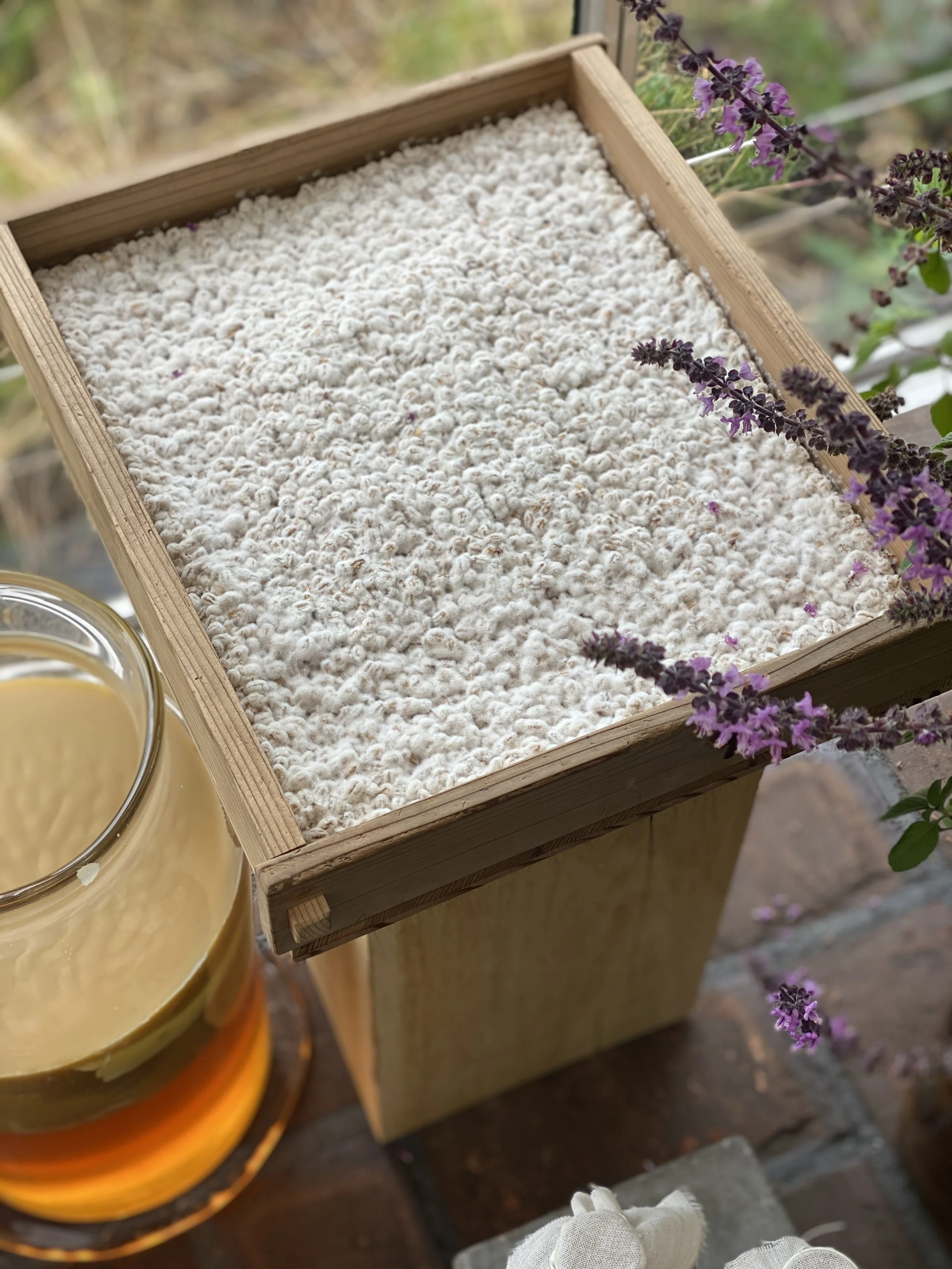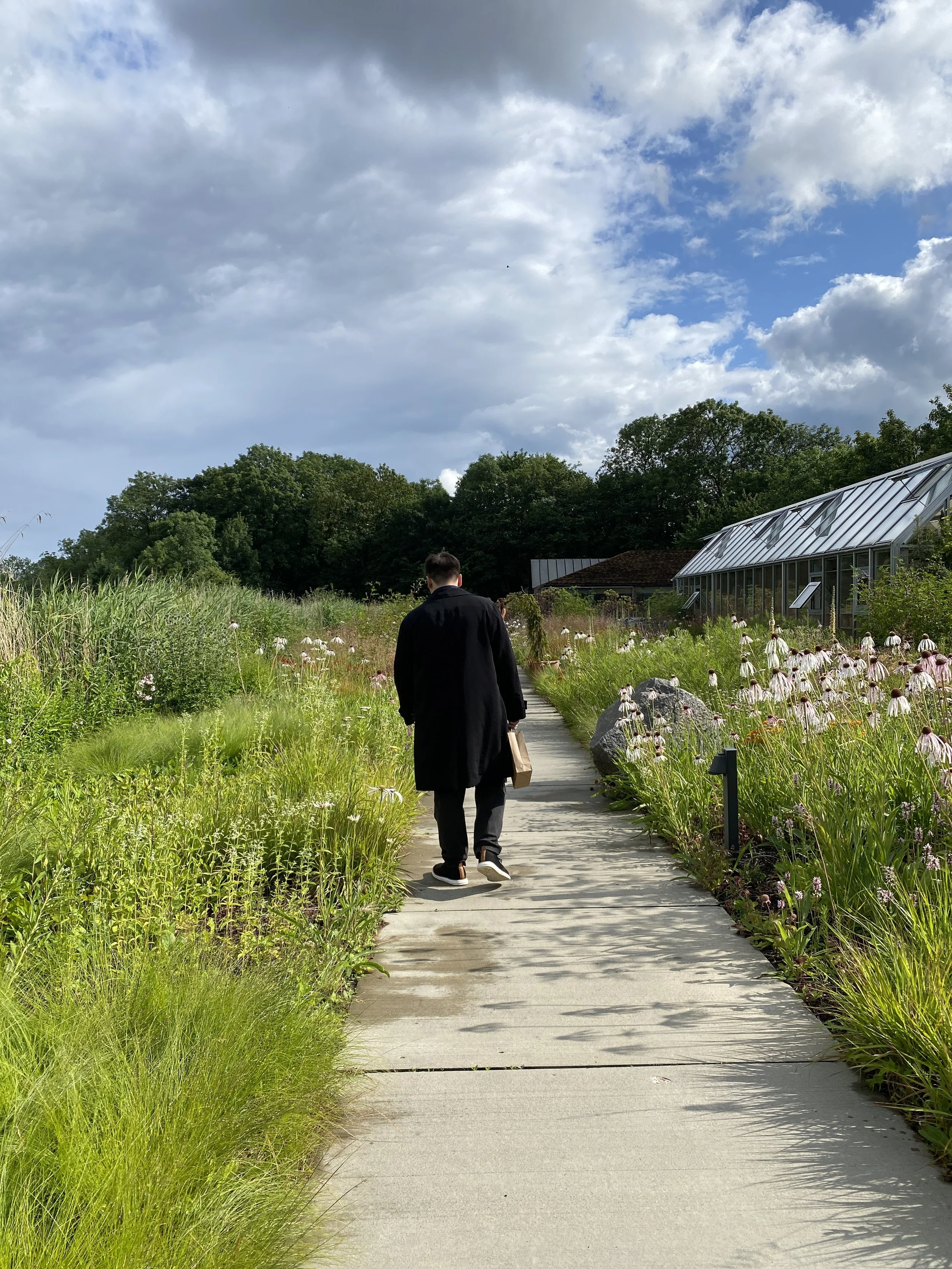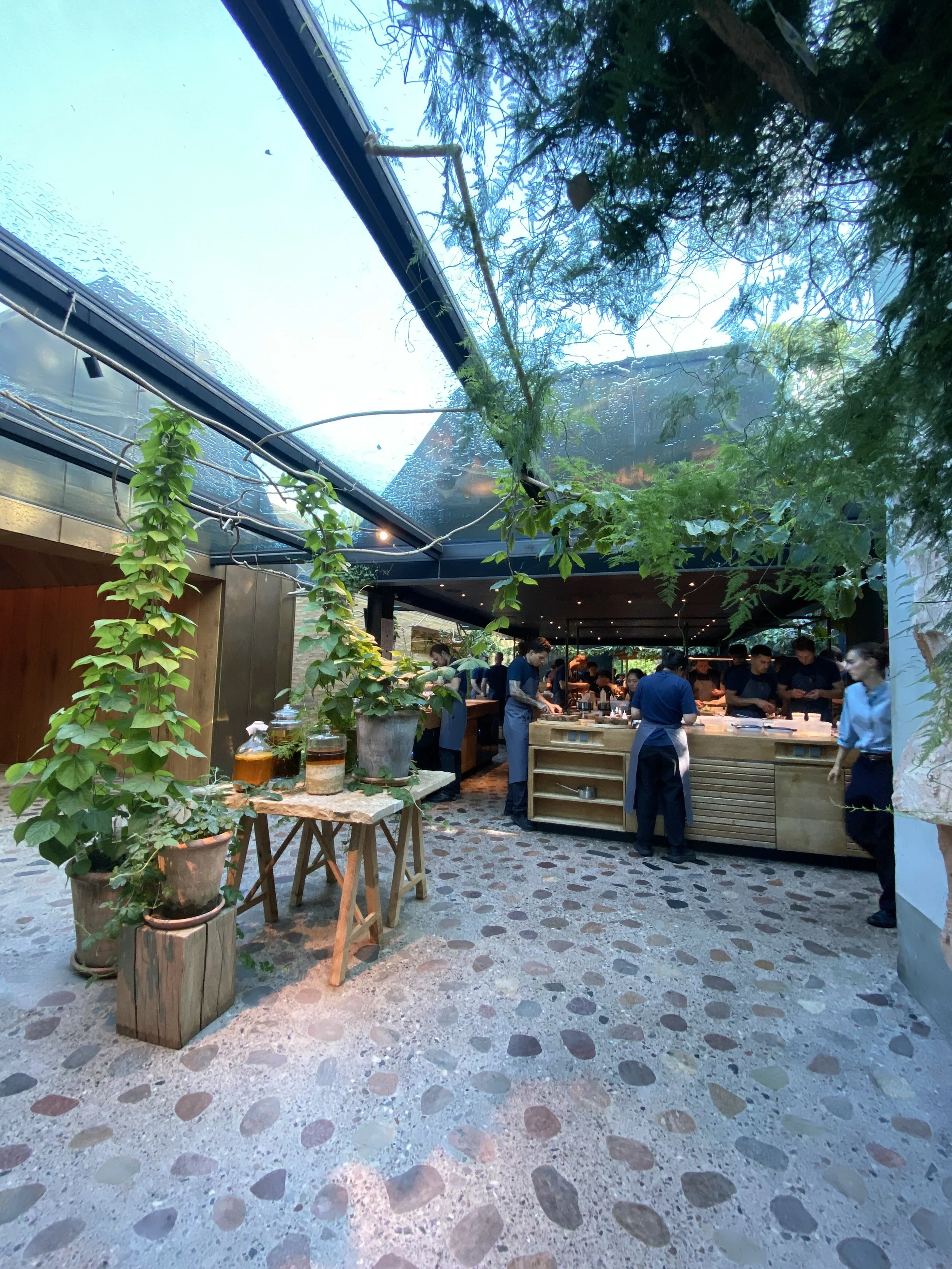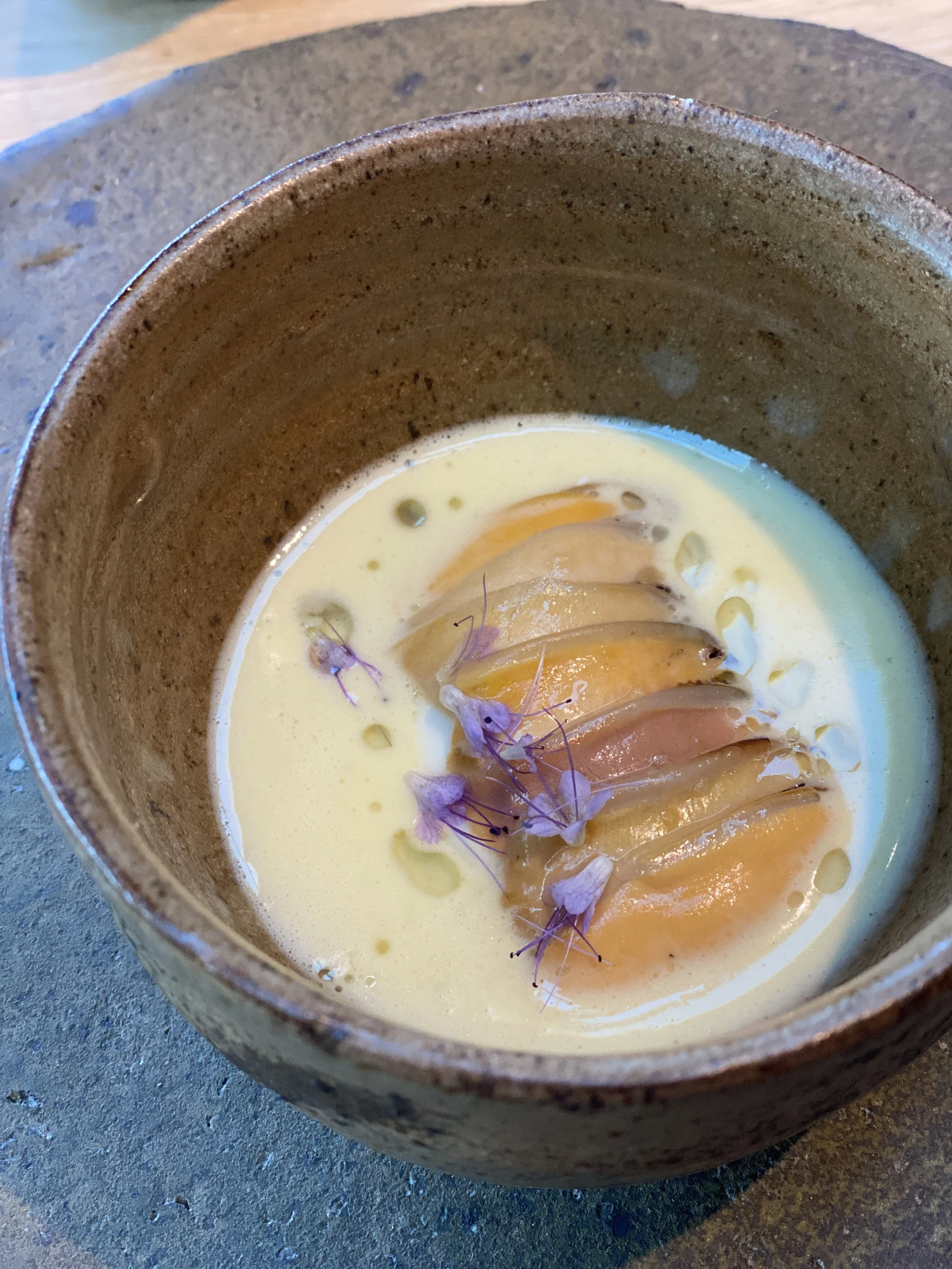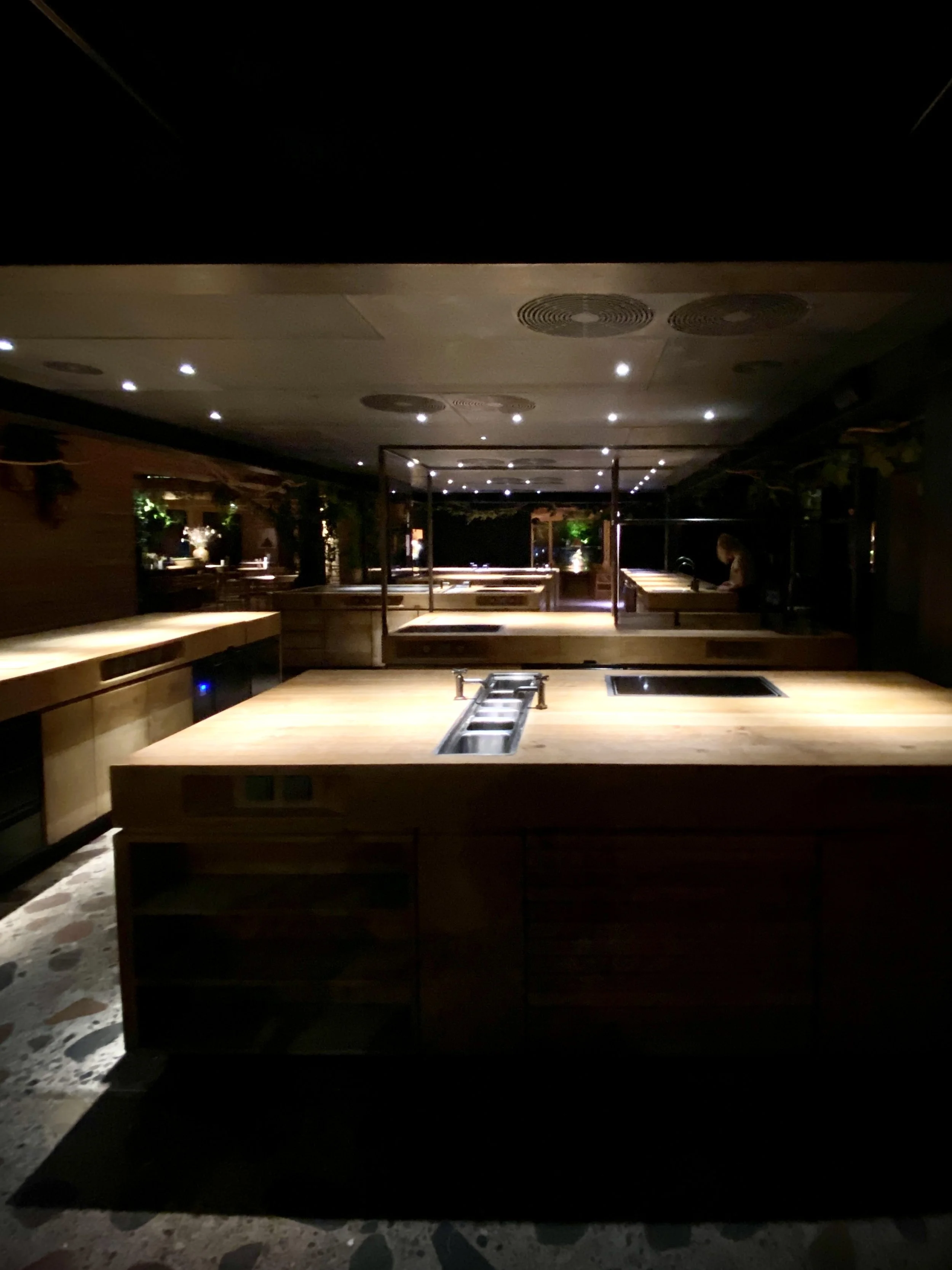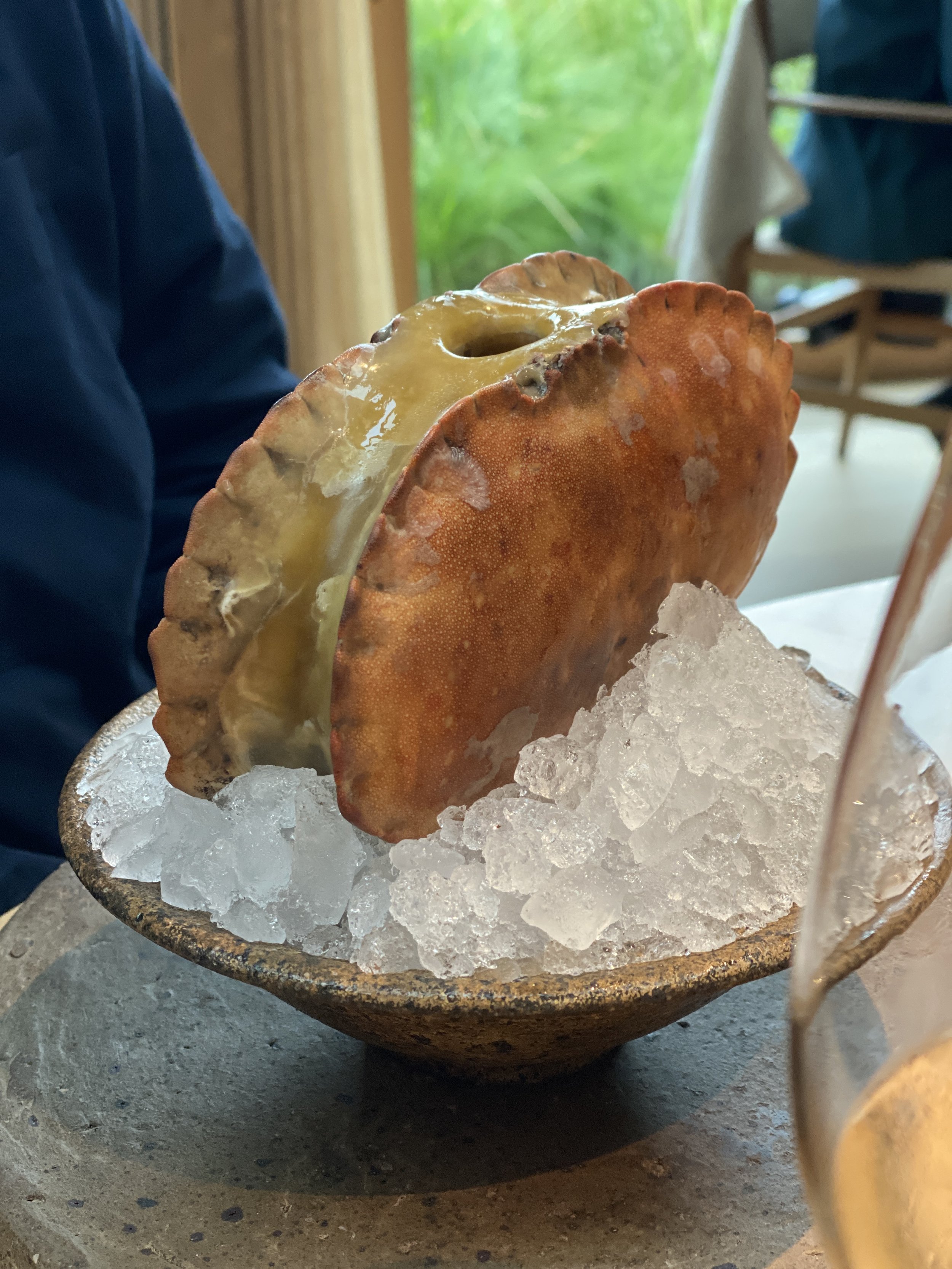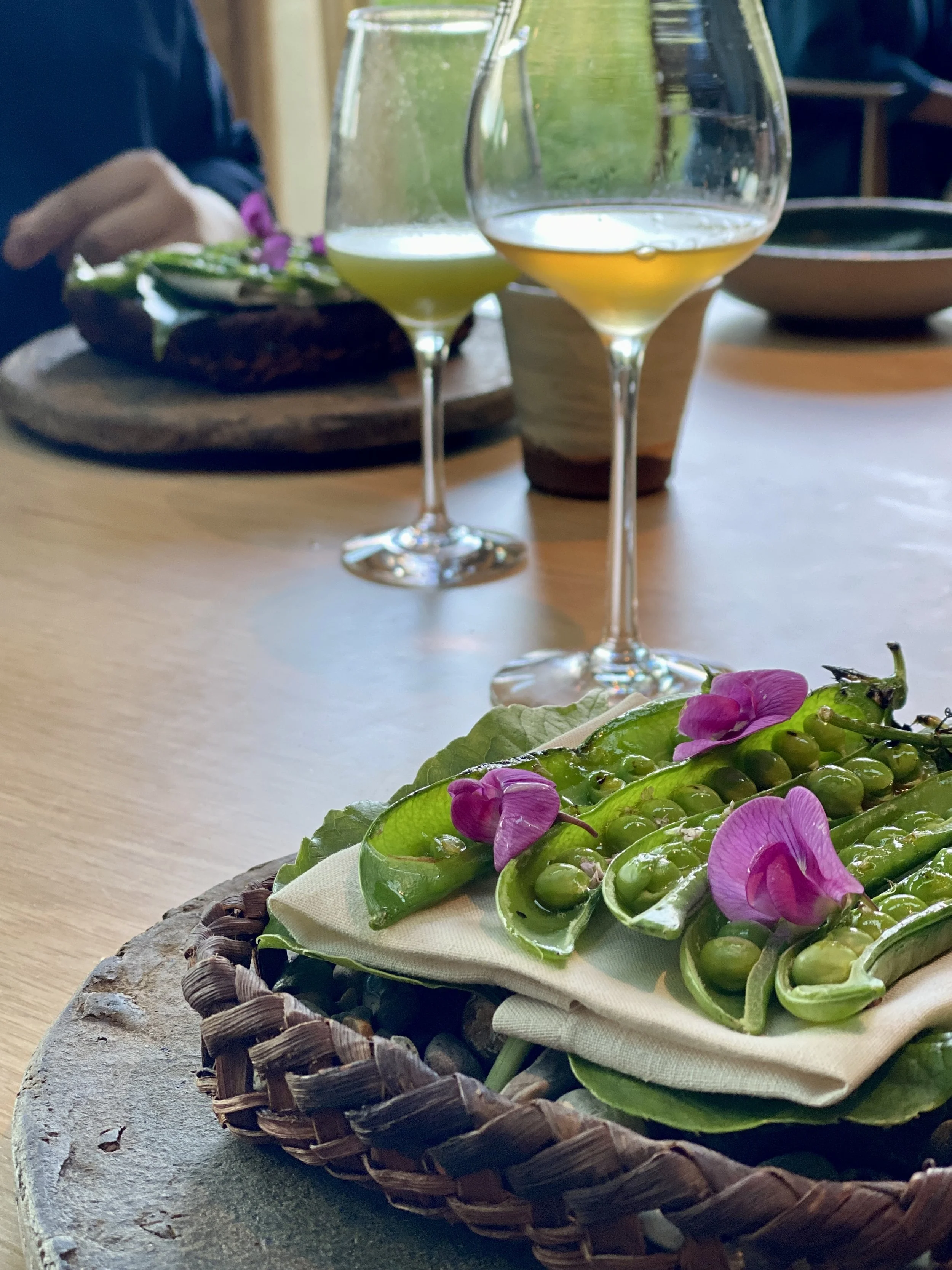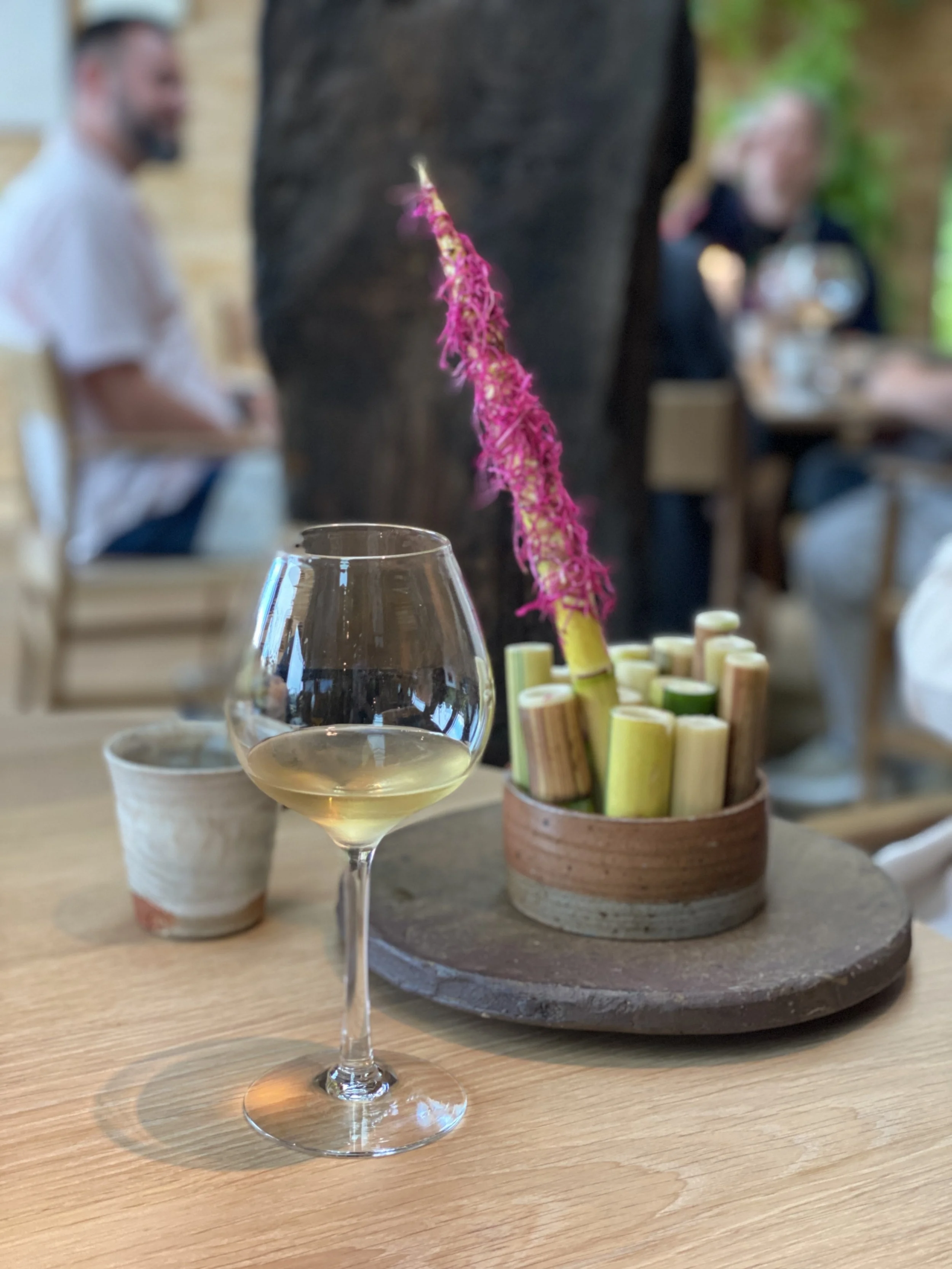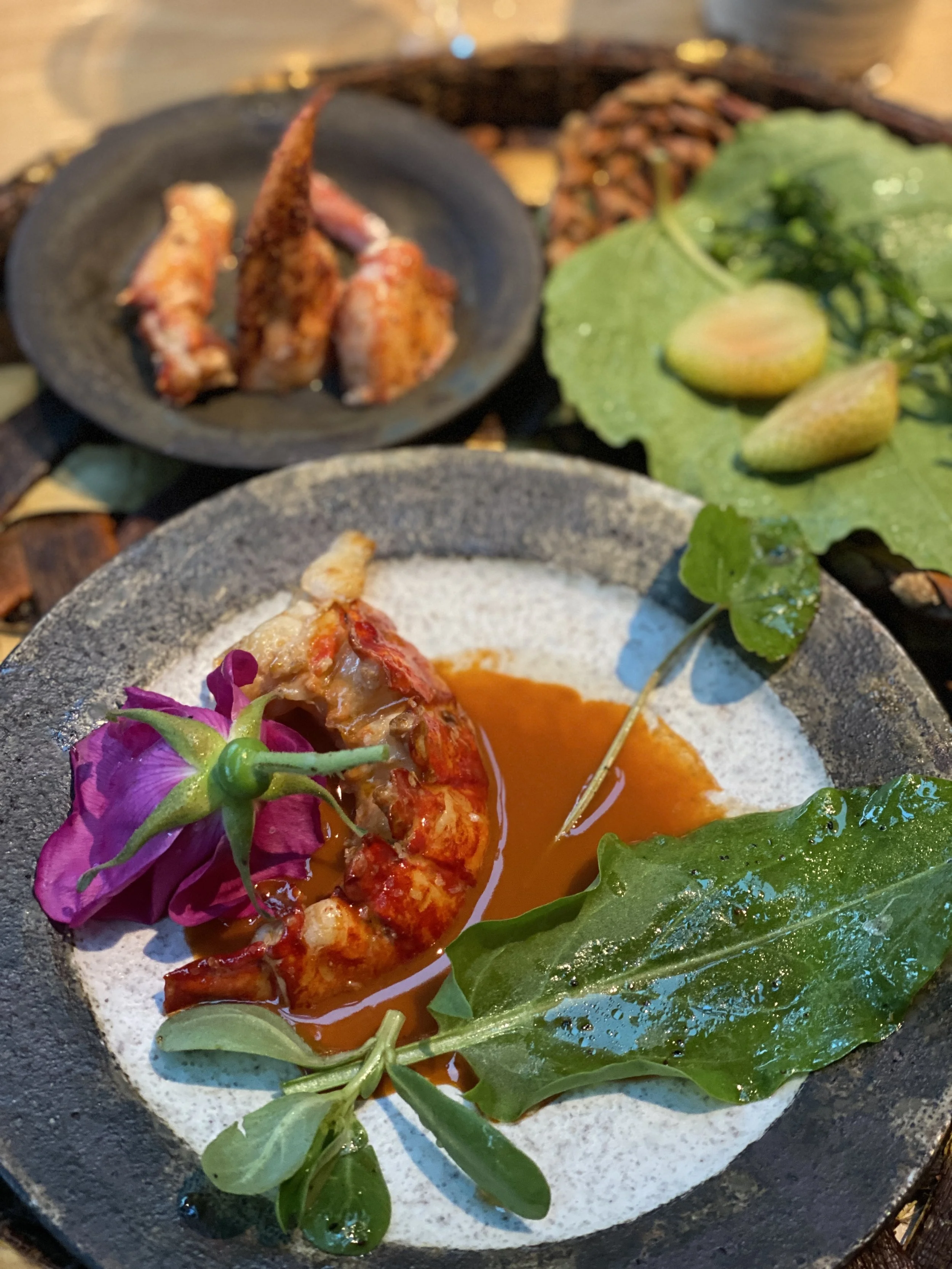Noma & food conversations
HOW WE EXPERIENCE FOOD at any level is broadly personal and unique, it makes for unlimited perspectives - and therefore unlimited conversations.
Anyone who follows restaurants and Chef’s in the global food world even peripherally has heard of Noma restaurant in Copenhagen, led by the much celebrated—and deservedly so—head Chef, René Redzepi.
Headlines have thrown them into popular culture with their widely documented and shocking ‘closing’ (Noma 1.0), their faces on Netflix through documentaries such as “Michelin Stars”, their autobiographical “noma : my perfect storm” and Rene’s narration of “Omnivore”, as well as through their most recent guest star in the cult hit fictional series, “the Bear” Season 3. Real nerds (like me!) have also been geeking out to their vastly popular publication “The Noma Guide to Fermentation”.
To Chefs, foodies and passionate home cooks, Noma is widely respected for its innovative approach to Nordic (place specific) cuisine through a heavy-handed dose of preservation and fermentation - methods born eras ago brought forward into the modern world through tests and trials in their own test kitchens. ‘Forage’ has subsequently entered all of our lexicons, and these rogue Chef’s in t-shirts have willfully re-written the script on fine dining.
A recent trip to Copenhagen was originally planned entirely around a single dinner reservation at Noma, not uncommon for those fortunate enough to break through their booking systems. A food-lovers pilgrimage. Through their new(ish) Taste Buds program, reservations were made available—at full cost—along with a weekend of workshops, special collaborative dinners at restaurants now run by ex-Noma Chefs, and tours of the Noma Projects facility. City-wide restaurant, bar, and distillery recommendations were rampantly shared throughout the online group chat from anyone who was living there, had been there to eat/work, or had eagerly done their share of research. For 3 wonderful days approximately 900 home cooks and Chefs took over the culinary landscape of CPH.
‘We’re going to Noma’. That was about all my son (my dinner/events +1) and I could repeatedly say even up to the point we entered the iconic front door. No more words were needed - we both knew and felt the weight of that phrase. It’s the anticipation of knowing the story and the wealth of innovation in a place, mixed with not wanting to over-think it because how could ANY experience live up to the pedestal of everything that IS Noma in this one 17-course meal? Eager apprehension.
Heading out, I carried some slight hesitation that our 3rd party couldn't join us (RSVP’s were limited to 2) - also a Chef and now focused on FOH, she would have loved the ceremony of it all. But, ready to go, my son and I earnestly left early—and it POURED. Even with an umbrella, my cute, wavy locks turned ragged and flat. His shoes soaked. We couldn’t figure out the mini ferry app with SIM cards on our phones but knew if we missed it we might end up late, and for the record, I am NEVER late. Stress was taking over my mind... I was anxious and excited and worried and all the emotions when we came across a random empty, floating Tiki bar to thankfully sit, sip and dry off a bit before continuing our journey, recapturing a smidge of hope and anticipation in the process. It wasn’t starting out as I’d have liked, but the sun broke out as we walked onward, eventually turning the corner at the little lake. With a sigh of relief, we were immediately wrapped in smiles and hospitality. Soaked socks and bad hair moments were quickly released from our minds.
We took our time walking down the garden path lined with some of the very ingredients we were about to consume, pausing often for a photo of sheds, of plants we recognized, of the door, of ourselves - of the moment in time. As we stepped into the lobby where FOH already knew our names and seemingly didn’t require any kind of additional system, they took our wet coats and bags, the weight of them lifted. With only 40-45 seats, our presence was anticipated and had been confirmed at the street. Sitting with our welcome cocktail crafted, naturally, by a local brewer, we breathed in the moment. My brain recalibrated in the stillness, taking in the first impressions, before being shocked towards our table by BOH’s exuberant HELLOS as we walked past the kitchen to the place we would sit for the next 6 hours. It’s time.
Whether the food was going to be great or not, whether it surpassed any extraordinary expectations we’d tried to subdue, we were going to accept the experience as a whole. We were just happy to have a seat at the table.
My own familiarity with Noma comes from their Guide to Fermentation and has thrived through their series of little bottles of funk and deliciousness from Noma Projects. An avid home cook, I’ll happily take on almost any challenge in the kitchen just to learn something new on a never-ending journey to add layer and depth to family meals. The Chef son connects to it all from a completely different perspective by being in the industry himself. The stories he’s heard, the friends who have walked these very halls and lived to tell about it, the myths that have circulated. He loves to see how kitchens are run, watching the brigades do their thing - easily done from the other side with the popularity of open layouts. We both arrived with a similar energy - genuine curiosity - even if it came from different starting points.
To be fair, there is not normally so much background story held in hand before even sitting for a meal. You choose a restaurant on some list or another - or by a recommendation - based on a connection to a word, a photo, a dish, and you book it, eat, and leave without knowing or needing to know the entire history of the restaurant, the a-z evolution of the food and every detail of the Chefs journey. The subsequent conversations then typically revolve around the tangible things you do now know - was the food delicious, was there a stand-out dish, was the service thoughtful and anticipatory, was the decor warm and inviting, would you recommend it? This simple candor isn’t possible with Noma. Fame doesn’t allow for it.
At our table of 4 we had come from all walks of life and lived in (at least) 3 different countries. We chatted easily about our passions for delicious and thoughtful food, places we’d eaten and loved, our favorite things to cook at home, and our first impressions of the dish, each served with a story of its own. ‘What’s your favorite so far?’ was asked more than once, and honestly it was sometimes hard to choose. Without the quick iPhone shot at each course, it’d be even harder to remember by the end. Later this experience will become a part of the story we tell at future dinners, and so on, as we continue to build our mental libraries of such moments.
Every dish managed to have an element that surprised me - which I appreciate at any cost, but especially at $1500+/person (with pairings - and no, this is not a normal thing for my financial situation). The Mussels and Curd will forever live in my taste memories rent-free. The simple plating of our vegetarian table mates Bamboo with Flowers was a stunning image to behold. Eating Snail while watching one crawl around the bowl of its fallen mates was both food and theatre - an immediate conversation starter. The precision of which our fruit and vegetable salad was sliced after being picked less than an hour prior. Sipping broth from melded crab shells is a dish I’ll be trying to re-create at home (with perhaps an added hint of chili), along with marinated Scoby (or vinegar mother), and pickled veg-wrapped Koji (am I brave enough to make the Koji myself?).
My son and I enjoy quick side conversations about what we liked about each dish, what - if we were to make it - we would add or change, admiring flavors and creative efforts as we go. We chat about the decor, the open kitchen layout, what that other table was just served and are we next to get it? Psst - If we sneak to the washroom (which I do about a dozen times anyhow) we can see the whole kitchen. Did we like that juice or was the wine perfect for that lobster dish? It’s the one language that, to some extent, we both speak. In hindsight, we didn’t talk about anything either than the meal at hand. At any other restaurant, on any other occasion, the conversation is never quite so singularly focused.
‘How was your Noma dinner??’ is the recurring, equally focused question after such an iconic event. It was inspiring and often delicious, thank you. I kept anticipating and would have enjoyed a substantial protein dish (I’m sure ducks are also available in Vegetable Season? Maybe a wee bit of Rabbit??) along with our simply-but-perfectly prepared lobster. The juice (non-alcoholic) pairings could have benefitted from a little more complexity. But I left full and happy. The company seated with us added a lovely conversational layer to the evening and seemed somehow perfectly chosen for us (I see you, FOH!). The service was exact, friendly, impeccable. Ending with a tour of the Kitchen was icing on the cake both for the kitchen Designer and the Chef. The evening was a delight and taken as a whole. My son would likely have a different take entirely - they’re trained to.
Having been voted #1 in the world 5 times (the maximum a restaurant can be on World’s 50 Best) and received 3 Michelin stars back in 2021 is fine. It’s the stuff of legends. But those accolades weren’t actually part of the conversations around us as we dined and workshopped over the 3 days. It was a known, and therefore a certain level of attention to detail was inherently presumed. Yet no restaurant even at that level nails every dish and not every person takes in the same meal with the same tastes or expectations. Cooking is a creative ART and therefore subjective. Even more so as it connects so acutely to our own memories, and our senses of taste and smell as well as sight.
Noma itself is focused on ingredient R+D and innovation - and anybody who has tried creating thousands of new dishes (or even just one) knows, it can be a real hit and miss process. Does that leave them open to some un-met expectations of diners? Probably. Is the conversation then around what the dish is doing versus specifically how it is tasting in comparison to other experiences? For me, yes. I heard in passing ‘It has 3 stars! Every dish should be 1000% delicious!’. Expectations are to be expected, whether based on price, status, other dinners of ‘equal caliber’, or our own barometers for value. Are our relationships with food purely based on taste? Never. They’re so much deeper and more complex than that. And how do you even have an expectation of a dish or ingredient you didn’t even know existed before this meal? Nostalgia is negligent when you can’t connect a new experience to an old one - in a good way - turning our normal narratives happily upside down.
It’s hard not to have unrealistic hopes - even secretly - for a meal that in many ways stands so far above the rest. There’s often a temptation by those with superiority complexes to take a swing at the kings of hills, adding a layer of discontent to a meal before it’s even been eaten. I’m sure 3* restaurants receive more bad reviews than a local chain making decent fried chicken - any perceived imperfection mustn’t be tolerated at that level! Many can’t fathom what it took to get to where they are, and don’t care to consider it. The 16 hour days a team of Chefs power through to serve their souls up to strangers while we sit and comment that we didn’t like that sauce. Sometimes - sure, it WASN’T the greatest sauce in the history of all sauces, but also sometimes our own egos get in the way of enjoying the fullness of the moment that’s been placed before us. And if that’s the case, are we all better off if those mouths keep a bit quieter?
Throughout a weekend with all of the ‘Taste Buddies’, conversations surrounded our Noma and other sponsored and recommended meals. Some centered entirely around the food - if the meal didn’t quite meet expectations, neither did the experience. Hence it was not a good use of their time or their money. In the online group chats a heralded place one person might highly recommend, another absolutely would not. Some took a more holistic approach - the food was ok, but this dish stood out and the ambiance / service was great, so definitely try it. Perspectives abound and can spin the mind in loops if you tried to follow every opinion.
For one ‘Noma Collab’ meal in a historic location, about 40 of us shared a table that definitely was not meeting the most basic of expectations even from the front door. I switched mental gears and decided I would choose to focus on enjoying the company at the table instead - I’m not typically one to accept a loss and will always try to find a win in any situation. It was paid for ahead of time, and for me was more of a moment to spend with my travel partners than solely a culinary test (which, to be fair, they also failed). In the end, underwhelming dishes and terrible service took over the conversation and it became a poor experience overall. With the added pressure of extended time away from home and the pressure of paying for flights, collabs, Airbnbs and multiple meals, it contributed to a temporary moment of devastation, loneliness and travel fatigue that will now forever be a part of that restaurant's experience story for me.
It’s fair to say ‘it’s JUST a dinner!’. But all walks of life in the midst of a vast variety of moments enter these pricey eating establishments of fame and honor with at minimum the expectation that the day they brought in on their shoulders won’t get worse. It may be unfair to have strangers - especially at FOH - bear that burden, but hospitality is WHAT THEY DO, is it not? Is it not what they excel at to the point of being celebrated and talked about and put on ‘the lists’? Isn’t hospitality, whether unreasonable or not, meant to care for you - sustain you - for the moment you’re in their space? It wasn’t the first and won’t be the last dinner that either saved or broke a day already unraveling. Noma had saved a nervous, wet-shoed, and flat-haired day. This place broke an otherwise happy—at least at the surface—one.
Online review sites have become the venting place for meals gone awry. I try not to ever write them, and I definitely read them with a LARGE grain of salt. Time and money spent on eating out carries certain expectations with it. Expectation can sometimes lead to disappointment. We can be led to feel then that the situation requires correction, or at the very least vindication through a barrage of typed-up words spewed forth into the webs. We feel entitled to receive our personal version of value for our money! Good service! Great food! Or, perhaps, food culture is no different than any other - not every meal will be perfect, and not every restaurant is meant to please every single person and it’s ok - move on to find the mix that’s right for you. Constructive versus reactive criticism can lead to a better experience for the next guest. Tearing down the morale of, possibly, a hard-working team who also happened to arrive unraveled that particular day doesn’t do anyone good.
All of our experiences - and therefore our conversations around them - varied greatly throughout the ‘Noma Weekend’. If every one of the 900 Taste Buds attendees wrote a review of either the Noma dinner or the weekend as a whole, they would all be vastly different. Food is integral to being a living being on this big earth. It’s a global condition to breathe and to eat, but how we approach, understand and relate to our meals is intensely personal. Critics and reviewers should always be taken with this grain of salt, and that’s why I very rarely write about where you should or should not go to dine. Add in topics of culture, celebration, sustainability, health and social issues and our observations of the dining landscape are endless.
How we experience food at any level is broadly personal and unique. It makes for unlimited perspectives - and as a result, unlimited conversations around it. Let’s remember that food—especially at this level—is a dialogue, not a monologue. It speaks to our memories, our cultures, and our imaginations. The best conversations about it don’t end with “was it good?”—they begin there.


